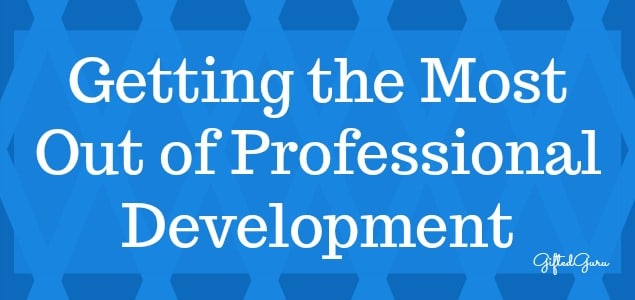
When I spoke at the Texas Association for the Gifted and Talented Annual Conference in 2010, it was a thought-provoking experience. The most powerful part for me was the keynote by Jim Delisle.
He’s best known for his many books on parenting (and being) gifted kids, but this keynote address was primarily about how we’re running on a hamster wheel (my metaphor) in gifted ed.
I wanted to shout “Hurrah!” when he said that cluster grouping is an abject failure and that gifted kids needed the sanctuary of each other.
One of the things I particularly noticed at the conference were the number of teachers who texted through entire presentations.
It shocked me.
Here they were, their districts having paid to send them, they themselves having prepared for subs to come, and they couldn’t think of anything to do other than texting. What hope for the kids, then? Really?
Don’t be that person.
I am not talking about people who are taking notes or tweeting or whatever form digital engagement takes. I’m talking about tuned-out texting. I’m talking about using devices to disengage.
To those of you who tune out completely during sessions or professional development, I would say (in the nicest possible way):
Please stop. Please stop.
To me, it signals our disregard for both the facilitator and our students. It’s interesting that many of the teachers who show complete disrespect for the facilitator are the same ones who demand respect from students.
Let’s not be learning hypocrites.
Even if the session isn’t perfectly tailored to us (or even very good), there are other things to do.
Here are some tips that may help.
Getting the Most out of Professional Development
- Come prepared to engage. Leave your grading and lesson plan books at home. Bring your engagement tools, digital or analog or both.
- Choose wisely, Grasshopper. Do you have a choice? If you don’t, then use other ideas here. If you do, consider choosing your sessions with care. Sometimes we end up in PD that’s not the best fit for us because we waited too long and a deadline looms before us. By preparing in advance for the PD that we need, we can sometimes get a better fit.
- Offer to pay for it. If you have the option to get PD at a conference or from a source that costs money rather than a district-provided training you don’t think you’ll like, take it. Even if it costs money, take it rather than suffer.
- Reward yourself. Make a donation to a charity of your choice in honor of the time you “donated” attending PD. Consider some other small but meaningful treat you can give yourself. If you know that every difficult PD session ends with a pedicure or a Sonic cherry limeade, you may come to look forward to it!
- Track well. Sometimes we end up having to attend duplicate training because we failed to keep adequate track of what we’ve attended and relied on technology to track it for us. Keep track yourself. I have a free Professional Development Log you can get to help with this.
- Engage your brain. If the session isn’t working for us (and we can’t leave), consider these things we can do during the session:
- We can think about what we can teach ourselves from what we’re hearing. What do we know about this subject? What do we wish we knew?
- We can practice our visual notetaking skills.
- We can network with other teachers during breaks.
- We can tweet out the things of value we find. Very few presentations are idea deserts.
- We can make a list of what we ourselves could present to benefit others next conference.
- We can think about how we can create a presentation ourselves to submit as a proposal for the next conference or district PD opportunity.
- We can consider what is luring us to disengagement and consider how we can diminish that for our own students.
I know it’s popular now to deliberately distract ourselves with our phones, but (in my opinion) that’s an unprofessional cop-out.
The saying, “How you do something is how you do everything,” rings true.
Would you welcome the same behavior you’re doing or the same attitude you’re bringing from students?
If you think that it’s different because you’re an adult, I’d agree.
I’d say you should be way better.
Disengagement in PD or at conferences often is a sign of deeper disengagement.
In a textbook on gifted education, a story was told of a teacher in Serbia who sold his car to be able to afford to attend a conference to learn how to serve his students.
Let that sink in.
Keep perspective by keeping in mind that there are teachers around the world who would be grateful to have this tremendous gift we have of coming together to learn with and from each other.
Is all PD amazing? Nope.
Is it all more valuable than time in the classroom? Nope.
Is professional development a fact of life when you’re in a profession? Yep.
Stop texting during sessions.
Stop shopping.
Stop checking email.
Stop scrolling through Facebook.
The neuroscience is clear: the more you deliberately disengage, the more bored you will feel.
We’re making it worse, not better.
Let’s get off of our phones and get into our lives.
Be fully present.
We’ll be better teachers for it.
You May Also Like:
- The Epic Teacher Resource List
- 6 Reasons Why PBIS Is a Terrible Idea
- Differentiation Advice: Teacher to Teacher
If you like getting tips, tech ideas, and other goodness, I’d love to have you join in! Get in on the goodness here.




